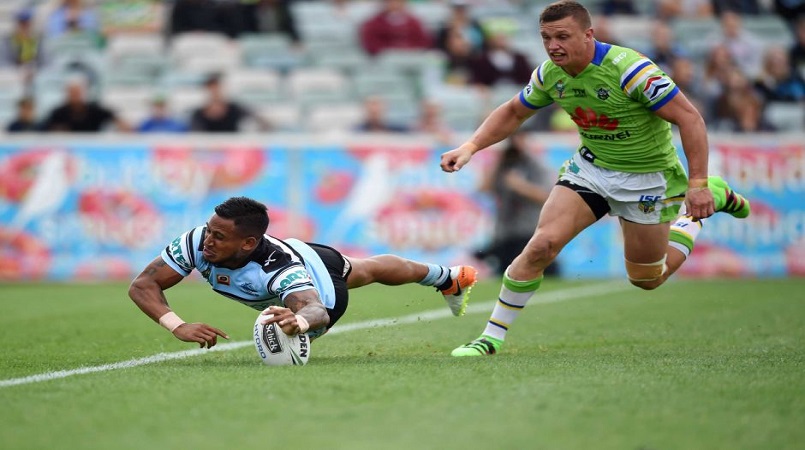
The NRL says it wants all players to study at university or do some training during their rugby league careers.
The NRL's chief executive Todd Greenberg has told the ABC he would like to see the condition form part of the code's new player pay deal.
Players should be doing something in addition to playing football "so they have something to fall back on," he said.
"I would expect that will be a big part of the collective bargaining agreement," Greenberg said.
This week premiership winning Sharks full-back Ben Barba turned his back on rugby league to sign a lucrative deal with French rugby because he was currently unemployed.
Key points:
- NRL wants players to develop off-field career paths through university or training
- Fears that portion of players not involved in development programs regularly investigated by integrity unit
- Issue in focus following Ben Barba's comments before his exit to French rugby
The former Dally M winner was caught using cocaine last year during the Shark's grand final celebrations and subsequently suspended for 12 matches.
Despite re-signing with Cronulla, Barba was unable to earn any income from the Sharks because the NRL had not registered his contract.
"I am a professional athlete with a set of skills, which I can't earn a living from in this country and I needed a job," Barba said in a statement.
Ben Barba is one of the players the NRL's integrity unit has investigated.
The Rugby League Players Association's (RLPA) chief executive Ian Prendergast says the game has a responsibility to help those players.
"There is some great work being done in the wellbeing and education space, which is reflected in over 80 per cent of NRL-contacted players being engaged in meaningful career development off-field," Prendergast said.
"The challenge now is to ensure we elevate the respect for this important area under the new CBA and increase the investment in players as people so that they can cope with the demands of being an elite athlete and the issues facing society."
While 80 per cent of NRL players have been involved in off-field career development, the remaining 20 per cent are overwhelmingly the ones playing up — 82 per cent of those players have been investigated by the integrity unit.
It's a worrying statistic that the NRL wants addressed.
"Their career in rugby league is relatively short," Greenberg said.
"We want to help them become fitter, faster and better footballers ... but we must make them better people, better men, better educated.
"We're doing a lot of that but we still have our issues.
"Education is important, but we also need to talk about the transition for players, because players who are finishing their careers and then going into life after football, a lot of them struggle.
"So we have to make sure we expose players to what it's like once their careers are over."
Wests Tigers player Matt Ballin is an example of a player who's prepared for life after football.
He says it could be hard to force players to complete further study on top a full-time playing career, but reckons it's worth it.
"I've gone and educated myself, I'm a high school teacher," Ballin said.
"It took me 12 years to do a four-year degree so I can't see why other people can't do it."
